MirandaNet presence in the UK and throughout the World
International | Africa | Bangladesh | Chile | China | CzechMiranda | Japan | Macedonia | Mexico | MiraNet | MirandaNorth | Poland | Regional | Romania | Star | Taiwan | Thailand | UK-Japan Science | UK-China Links | USA
2006 UK-Japan Young Scientist Workshop
Circadian Rhythms, Sleep and Jet Lag
Aims and Participants
This group was led by Professor Derk-Jan Dijk, Dr Simon Archer, and Dr Malcolm von Schantz, and were exploring sleep, Circadian rhythms and jet lag. Surrey University’s sleep laboratory is one of the largest in Europe.
The students involved were Ayaka Okamura from Rakuhoku school, Yasuki Takeda from Kyoto university school of education, Midori Higashino from Ritsumeikan school, Ayaki Koyama from Horikawa school, Nozomi Itakura from Rikkyo Japanese School, UK, Andrew Pike from George Abbot School, Sian Humphries from Colchester Upper, Chris Joyce from St. Benedict’s, Elodie Colinese and Luci Wu also from George Abbot School.
The facilitators were Hiroko Chujo, with Yasunori Sakamoto (first day).
The learning outcomes of the students’ research are recorded here.
Photos of the students in action
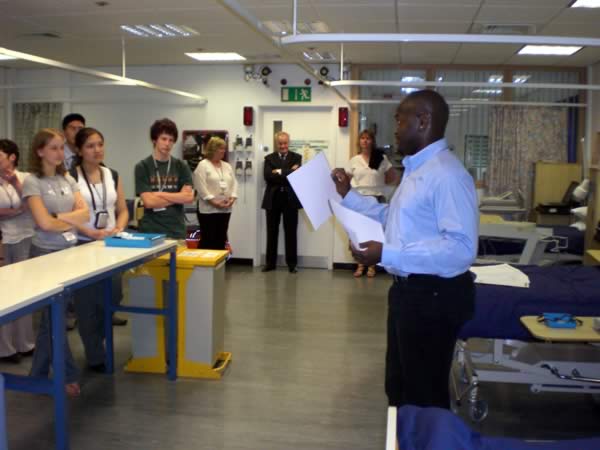
Learning the Basics
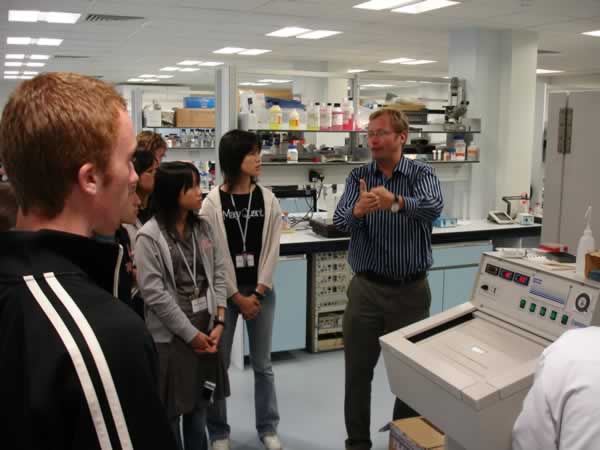
Dr von Schantz keeping them awake
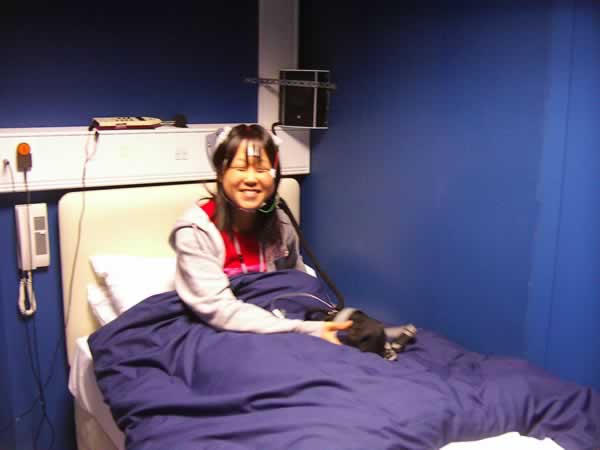
People get paid to sleep here
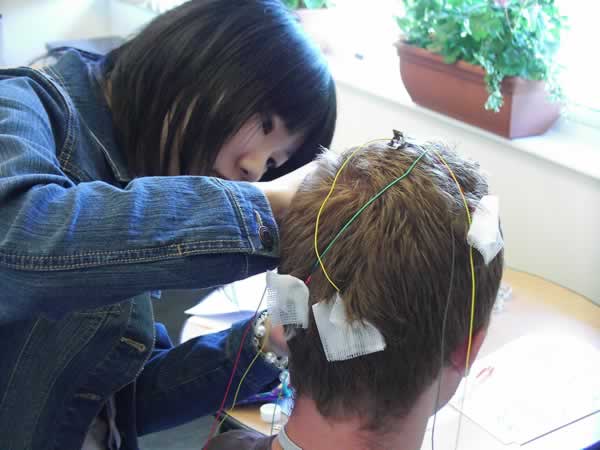
Please don't move, Andrew
Final Day Student Presentation
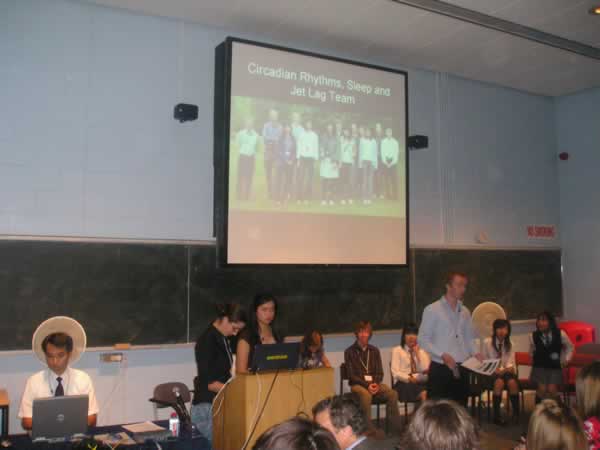
The Sleep Team wake up in time to make their Presentation
(note that their research has also benefited from the halo effect)
(or is it one of those Mexican sombreros?)
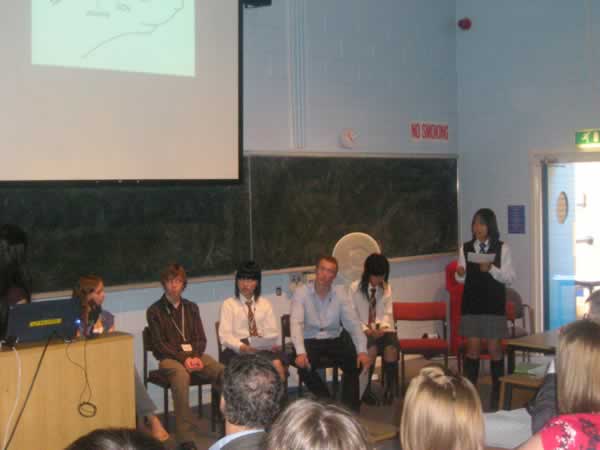
Sleep Team Presentation
[Back]
 During
the week-long Workshop, students and their teachers, university researchers,
and cultural language facilitators worked together, through the process of
inquiry, to understand a challenging and complex scientific problem. At the
end of the week, students gave presentations of their original research findings.
Follow the links below for information about the five science workshops.
During
the week-long Workshop, students and their teachers, university researchers,
and cultural language facilitators worked together, through the process of
inquiry, to understand a challenging and complex scientific problem. At the
end of the week, students gave presentations of their original research findings.
Follow the links below for information about the five science workshops.
- Climate change, Health and Ethics
- Water for Life
- Global Monitoring by Satellite
- Exploring the Nanoworld
- Circadian Rhythms, Sleep and Jet Lag

[Back]

